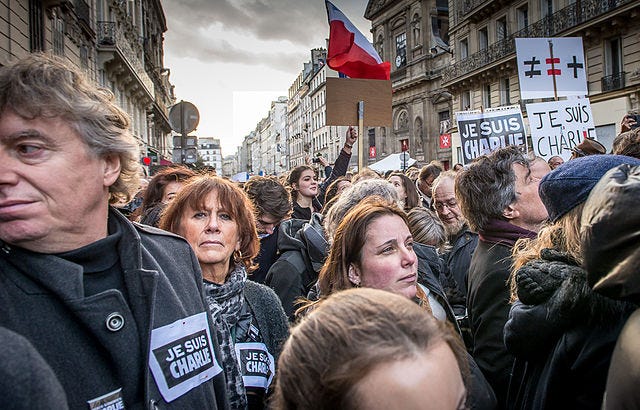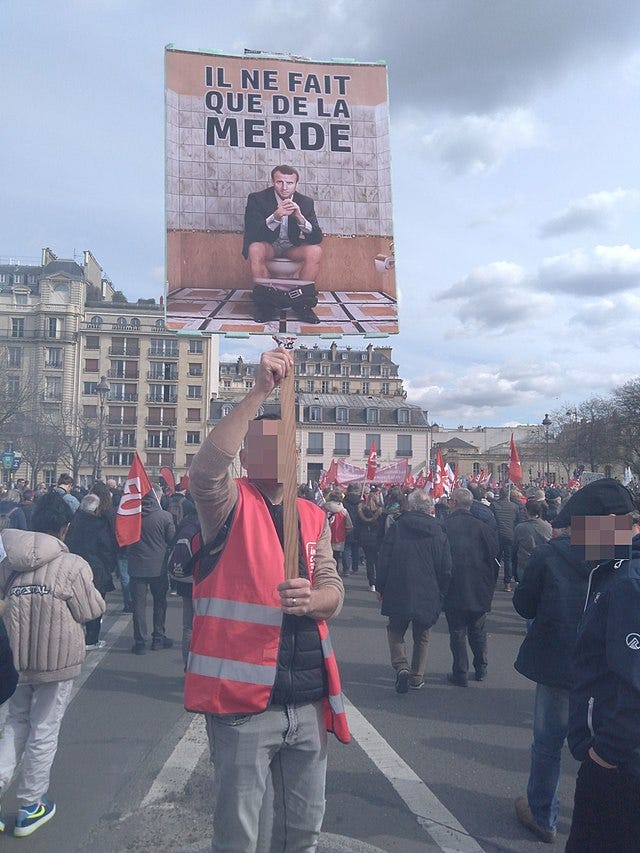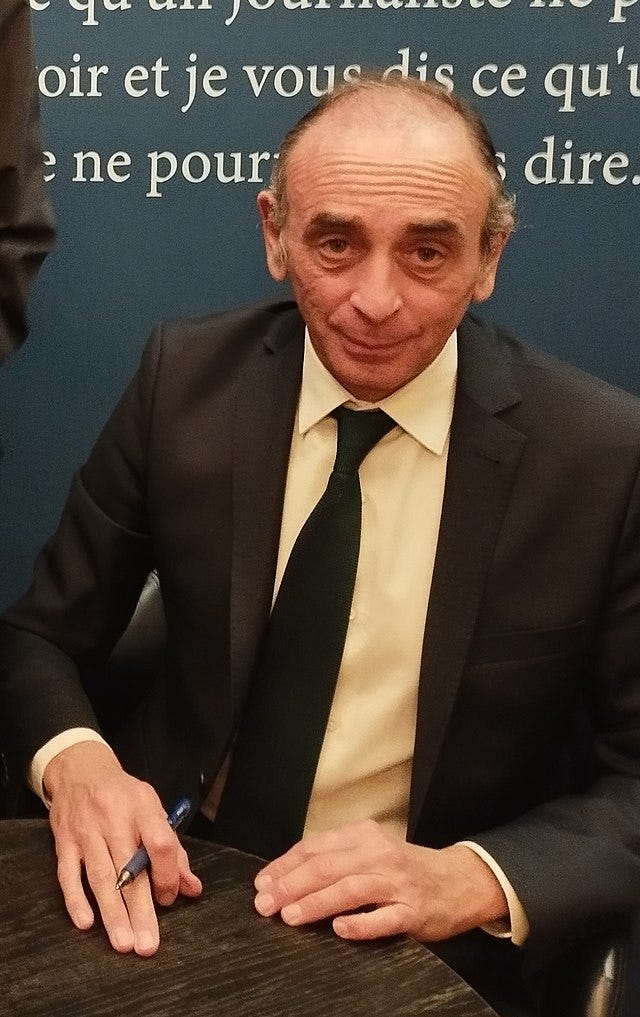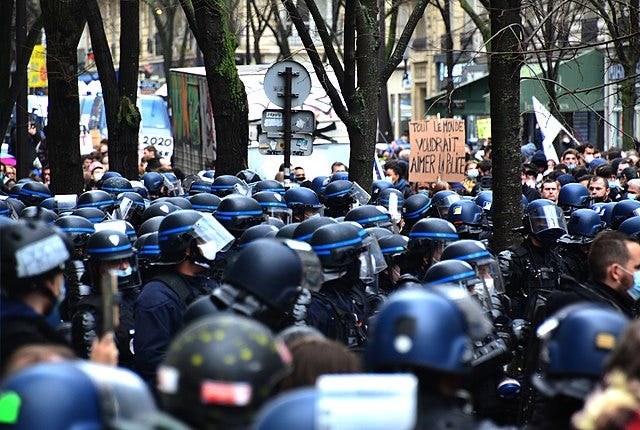The French Case for Freedom of Expression: Only for Selected Few
French President Emmanuel Macron may say he defends freedom of expression, but in reality a joke at Macron's own expense can bring about a police investigation for 'hate speech' or 'public insult'.
In January 2015, two Islamist extremist brothers attacked the editorial office of the Paris-based satirical magazine Charlie Hebdo, killing 12 and wounding 11 people. The magazine had repeatedly published caricatures of Islam's Prophet Muhammad, which is forbidden under the Islamic law. "Je suis Charlie," people said, in a show of support for those killed and in reaffirmation of their stand for one’s freedom of expression. Led by then French President Francois Hollande and 40 other world leaders, at least one and half million people took to the streets of Paris in a 'unity march', just days after the attacks – for by that time, there had been more of them, with death toll rising up to 17 – standing up for freedom of expression and freedom of the press.

As evident by now though, how free a free word really is in France depends largely on the context. To publish caricatures of Muslims and their prophet is to make fun of God and religion – it is blasphemy. But blasphemy – be it at the expense of a Christian, Islamic, Jewish or any other religious god – has been permitted in France since the Revolution of 1789.
Macron: “In France, one can criticize a president, governors”
A case from January 2020 is in part also related to the topics of religion and freedom of expression. A then 16-year-old girl named Mila made an Instagram video declaring herself homosexual. In the comments under the video, a "Muslim commentator" called her “a dirty lesbian” and “a dirty whore”. Mila then made another video in which she claimed "Koran is filled with nothing but hate" and "Islam is a shitty religion". Following subsequent death threats on her, the police took her family into custody and the identified threat-mongers were brought to justice with sentences ranging from fines to 3 years in prison.
Yet the issue of “hate speech” concerned Mila's own case as well. Nicole Belloubet, French Minister of Justice in office at the time, condemned the death threats but saw Mila's so-called attack on religion as "an attack on freedom of conscience". French President Macron then intervened, stating firmly that "the law is clear: we have the right to blaspheme, criticise, caricature religions."
The wicked Charlie Hebdo needs to be constantly defended from attacks on freedom of expression. The most recent case dates back to January this year. The satirical magazine organised a competition for cartoons of Iran's Supreme Leader Ayatollah Ali Khamenei, with winning entries published on its pages. One of them depicted a turbaned religious man trying to grab a hangman's noose, in attempt to avoid drowning in blood. In another, Khamenei clinged to a throne above the upraised fists of a protesting crowd. Iran promised to respond to the insult and, as the first step, closed down the French Institute in Iran. However, Catherine Colonna, French Foreign Minister, reaffirmed that France, unlike Iran, enjoys both freedom of press and freedom to blaspheme.
In September 2020, when Charlie Hebdo had once again published cartoons of Prophet Muhammad in celebration of the commencement of the trial for the accomplices of the 2015 attacks, Macron again spoke out in defence of the magazine. He reaffirmed that blasphemy is still legal in France and linked it to freedom of conscience. "I am here to protect all these freedoms. In France, one can criticize a president, governors, one can blaspheme," he said.
Mocking the President is nonetheless a crime
So it seems clear that in France, as Macron has promised, it is safe to make fun of religion and to criticise religious leaders, as well as heads of state and other authorities. However, the reality proves different.
On March 29 this year, 50-year-old Valerie, living in northern France, was arrested by the police. The reason given was her Facebook post of a photographed graffiti, saying "Macron garbage". Protests against Macron's pension reforms had been going on for a while in France, accompanied by a strike of a large number of garbage collectors. This in turn meant that no one was there to take the rubbish out and it kept piling on the streets. Valerie had also made another post on Macron's plans to appear on television: "The garbage will talk tomorrow at 1 p.m... We also find the garbage on TV." These posts led to three police officers arriving at her door, accompanying her to a station where she was briefly locked up. Valerie is accused of publicly insulting the President and if the trial, starting in June, should end in her conviction, the fine could reach €12 000.

Let's regard another example directly related to freedom of expression, Macron and caricatures. In September 2021, court ordered to fine a man in the South of France for the sum of €10 000 for having put up an anti-Covid billboard depicting Macron as Hitler. A Nazi-style wristband had been placed around Macron-Hitler's left arm, where the acronym of the Macron's movement La République En Marche!, LREM, had been formed into a swastika. The placard read: 'Obey, go get vaccinated.' The case against the man was initiated by Macron himself.
A "hate speech" attack on freedom of expression
According to the French court, political activism can also be a way of overstepping the boundaries of freedom of expression. In 2015, the French court convicted 12 pro-Palestinian activists who called for a boycott of Israeli goods. They had distributed leaflets to this effect in shops and worn T-shirts with the same message. Court convicted them of inciting racism and anti-Semitism. However, the European Court of Human Rights overruled the decision in 2020, on the claim that France had violated the activists' right for freedom of expression.
A few hundred similar cases is dealt with by the French police every year. According to the statistics provided to the OSCE by the French government, there were 279 cases of hate crimes in 2021, 273 in 2020 and 127 in 2019.
One of the most high-profile recent hate-crime trials in France concerns Marine Le Pen, leader of the right-wing National Rally and President Macron's main domestic political rival. Her case rose out of Twitter posts made in December 2015, in response to Jean-Jacques Bourdin, a journalist who also spoke out on Twitter. Bourdin likened Le Pen's nationalist movement to the Islamic terrorists ISIS, whose Arabic name is Daesh. In response, Le Pen posted several photos of ISIS crimes. One of them showed the body of the brutally murdered American journalist James Foley, another the body of a murdered Jordanian airline pilot and a third that of a Syrian soldier who had been run over by a tank. Accompanying the photos, Le Pen wrote: "This is what Daesh is." A similar response was given to Bourdin by Le Pen's party colleague Gilbert Collard. Of course, the politicians' posts caused quite a stir, and they were accused of spreading messages of violent nature, having the potential to seriously damage human dignity. Prosecutors wanted to fine the politicians for €5,000, but the court acquitted them in May 2021.
Eric Zemmour, an anti-Islamist and anti-immigration politician who positions himself even further right than Le Pen, and was one of the presidential candidates in last elections, has several hate speech convictions in his name. For example, he was prosecuted for a TV appearance in September 2020 in which he commented on a knife attack by a young radicalised Pakistani immigrant. "They have nothing to do here. They are thieves, they are murderers, they are rapists, that's all they are. They must be sent back and they must not even be allowed here," he said. Prosecutors said the words were "contemptuous" and "outrageous" and "the limits of freedom of expression had been crossed". In January 2022, the court sentenced Zemmour to a €10 000 fine.
Zemmour had already several previous convictions for his use of words. In 2016, he had claimed that there was an "invasion, a colonisation" of Muslims into France. Zemmour was given a €3,000 fine for that comment. The decision was upheld by the European Court of Human Rights, to which Zemmour finally appealed.

Of course, in the case of Zemmour, one might ask, could he not choose his words a bit more carefully, be a bit more polite in public? But one could just as well ask, why should he hide his real thoughts and intentions? And how would society benefit from it if we didn’t know what a politician was really thinking and had engaged in constant self-censorship for avoiding accusations of hate speech? In a democratic society, there is a mechanism in place for providing feedback on the behaviour of every politician – it is called elections. In the 2022 French presidential elections, Zemmour received the support of a little more than 7% of his countrymen.
Is one allowed to tape the riot police?
The desire of the French authorities to limit people's free expression applies similarly to various social media platforms. In May 2020, the French Parliament adopted a new law for search engines and social media platforms, obliging the companies that ran them to remove "manifestly illegal" content within 24 hours of receiving an according notification. In the original wording of the law, failure to do so could result in a fine of up to 4% of the company's turnover. In a later version the fine could rise up to €1.25 million. According to the critics, such an obligation, imposed under the threat of a heavy fine, would force companies to remove content even if someone were to just report a post they found subjectively objectionable, even if there was nothing illegal about it. A ruling of the Constitutional Council of France from June 2020 found the law restricting freedoms of expression and opinion in its present shape. The law, which came into force on July 1st 2020, removed the criticised clause and imposed a general obligation on platform providers to improve the reporting system for "hate speech".
However, the weakness of the French state seems to lie in its handling of large-scale public protests and in its inappropriate use of police power in dealing with them. In April 2021, the French parliament passed a law which made any help in identifying on-duty police officers with ‘obvious harmful intent’ toward them punishable. The original version of the law sought to ban the sharing of videos and photos of police officers on social media altogether, but this was amended, following widespread protests. One can imagine, for example, filming a protest being brutally dispersed by police officers with clubs and tear gas, clearly using excessive force. Yet sharing such a video on social media afterwards – should any police officer be identifiable and the motive for sharing the video found to be a desire to harm him or her – could mean up to 5 years in prison and a fine of €75,000.

During this year's wave of protests, French police officers have repeatedly been accused of using excessive force. For no apparent reason, they have detained hundreds of people and threatened detained youths with violence. Journalists covering the events have also been assaulted and detained by police officers.
To conclude, even in view of the small number cases cited here, the public image of the state of France and Macron himself as defenders of one’s freedom of expression become rather blemished. Freedom of expression feels of weight only when it appeals to those in direct power or in possession of significant influence over the limits set on people’s freedom of expression. This means, however, that as a notion, freedom of expression has turned rather meaningless in today’s France, for clear rules over its limits are lacking and discretion applies. On one hand, its claims can be used to suffocate political opponents and others whose ideas are not to the liking of the authorities, in persecuting them with criminal investigation and trial. On the other hand, the self-censorship this causes in people means that freedom of expression is going to dwindle anyhow. Yet once freedom of expression disappears from society, will it still be possible to talk of any other freedoms? Won’t democracy itself be lost in the course?






